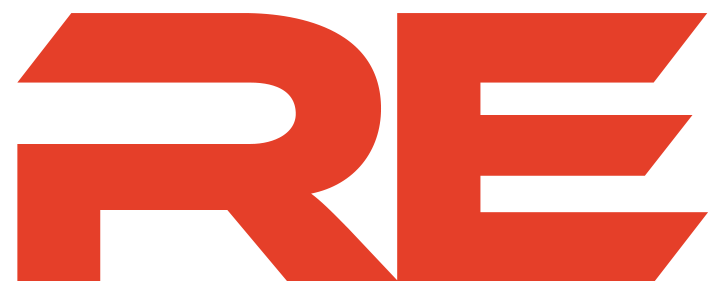Embracing the Collaborative Economy
Although unfamiliar to those of us steeped in a competitive model of economic success, the world has moved on and is continuing to stake out new opportunities for economic success through previously unheard-of degrees of cooperative effort.
Our conflict aversion is our greatest enemy in the Exponential Age of digital data, artificial intelligence and blockchain technologies. Doing “better, faster and cheaper” is the mantra of the collaborative economy. The business model that has worked extremely well in the former competitive economy is on the verge of collapse. Let’s examine the evidence.
RETHINKING THE COSTS OF A COMPETITIVE MINDSET
Howatt HR Consulting provides a conflict cost calculator to gauge the cost of unresolved conflict in law firms and legal departments. I recently ran my calculator from the perspective of the most conflict-rich workplace I remember being a part of. It only cost $100,000 per year in lost productivity, absenteeism, health-care claims, turnover and other profit-destroying contributors.
That is simply the impact of one person in that workplace! Howatt points out that the Canadian economy suffers a loss of over $16 billion each year due to unresolved conflict in the nation’s workplaces.
A recent visit to Silicon Valley revealed how cooperative business has become. I spoke with a software engineer working for Dell who supervises a software development team. Nothing abnormal about that. However, he manages a team whose members change every day on projects that change every day. A Dell engineer manages a team that one day might consist of developers from Microsoft, SAP, Google, Apple and others. They are working on open-source software that builds open-source software—for the benefit of all.
When did all this happen, you ask? Seemingly overnight, and without warning. That’s exponential. As a result, no disciplinary expertise is sufficient in itself.
Cognitive diversity is the fuel of innovation. Seeing a problem from the same perspective leads to the same old solutions. Seeing the same problem from multiple perspectives (gender, racial, religious, sexual orientation, disability and national origin) brings creativity to the table, and competition is inimical to its success.
The Harvard Business Review cites the power of our “mind-blindness” in the face of economic peril. It’s all about heuristics. This is the state of mind that determines how we react to stress and threat. Our worldview is only valuable in the context of how it was formed. Another way of saying it is, “You can’t tell a room full of millionaires their business model is broken.” They can’t hear it. This is not a function of intelligence but of experience. We can’t know what we don’t know.
Specifically, the mental heuristics that take over our cognitive capacity in times of economic peril can be summarized with startling reality in the following ways:
The sunk cost fallacy. A rational decision maker will look only at future costs, not at past ones.
Loss aversion. Decision makers often prefer to allocate more resources to continue with a chosen course than abandon it.
The illusion of control. People habitually overestimate their ability to control the future.
Preference for completion. People have an inherent bias toward completing tasks.
Pluralistic ignorance. This can result in everyone agreeing to a decision that no one believes in.
Personal identification. Withdrawing from a commitment may result in a perceived loss of status or a threat to one’s identity.
When combined, these mental heuristics, which reflect simply how the human brain works, can be a toxic brew of mind-blindness, obscuring paths to rescue and ways out of a dilemma of our own making.
What’s a body to do? We must overcome our conflict aversion and welcome a path to open, respectful and strategic conflict competence rather than our preferred resort to passive-aggressive behavior.
RETHINKING: COMPETITIVE TO COLLABORATIVE
The same Harvard Business Review article suggests rules to follow to achieve conflict competence in the context of group activity
Rule No. 1: Set decision rules. Agree to decision rules in advance. How we decide is as important as what we decide.
Rule No. 2: Pay attention to voting rules. Power-based voting, as in by partnership shares, is disjunctive and therefore divisive. Criterion-based voting is conjunctive and far more reflective of objective consensus than sheer power. Learn the “fist to five” model.
Rule No. 3: Protect dissenters. Cognitive diversity is the fuel for innovation. All thinking alike is the heuristic equivalent of “see no evil, hear no evil, say no evil.” Opposing views should be encouraged, not silenced. Respectful disagreement can open minds to previously unconsidered solutions.
Rule No. 4: Expressly consider alternatives. When unanimity masks mere acquiescence, trouble is brewing. Mere binary choices may be easy but be ill-informed. Take time, do some research and fully consider a number of alternatives, even if they are not obvious in the current state.
Rule No. 5: Separate advocacy from decision making. A course chosen is not always the best course to follow without thought. A decision made too often instills an advocacy for its completion that can be unquestioned. It’s not being wishy-washy or indecisive to ensure that as a decision is implemented, it remains the best decision to adhere to when data suggests otherwise.
Rule No. 6: Reinforce the anticipation of regret. Leaving familiar territory is uncomfortable, and it’s appropriate to regret the loss. However, imagining the state of being to be achieved if the journey is successful can be a better strategy than simply focusing on the land left behind. Visualize the future and plan for its arrival while acknowledging the reality of the comfort of the past.
EMBRACING THE COLLABORATIVE MINDSET
Start small and learn as you go. Discover the power and the scope of building bridges rather than silos. As our digital world continues to explode in data and the power to process it, learn to learn from other disciplines. Make friends with a data scientist, a software engineer or a legal project manager. Learn to see problems from the perspective of others.
And, most importantly, jump in, the water’s fine.



